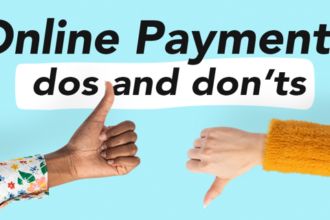Quick—name everything you’ve done on your phone in the last hour. You’ve probably sent a few texts, posted on Facebook and Instagram, checked your school’s app to see if your kid has homework and googled that actor whose name you can never remember.
You might’ve also written a to-do list, done some online shopping or sent a few emails. A million big chores and little honey-dos, all accomplished on the little device in your pocket.
Your kid has probably done the same things on their device—googling stuff for class, posting on Instagram, watching YouTube videos, sharing memes with their friends.
But while you guide your kids through interacting in the real world—speaking respectfully, sharing responsibly—those efforts may not translate to their behavior in the online world.
Navigating the Digital Landscape
Anxiety about social media and the internet is at an all-time high. It’s been explored in depth (and with increasingly darker results) in recent, popular TV shows and movies, including 13 Reasons Why, Black Mirror, Ingrid Goes West—and even Bird Box, if you believe some fan theories.
All this anxiety isn’t unfounded—parenting in the digital age is increasingly complex as families work to help children act safely, responsibly and thoughtfully online.
But as famed American photographer Rick Smolan once said, “Every time there’s a new tool, whether it’s internet or cell phones or anything else, all these things can be used for good or evil. Technology is neutral; it depends on how it’s used.”
Parents Take Charge with PTA Connected
That’s why we started PTA Connected—to help parents take charge of their digital life! National PTA is committed to fostering safe, positive use of internet-connected devices, digital and social media among youth, as well as arming families with the tools they need to help their children be successful online and off.
Based on feedback from parents like you, PTA Connected focuses on five key pillars:
- Safety
- Security
- Literacy
- Access & Equity
- Citizenship
The program explores in-depth the issues that are on the minds of today’s families and connects those families with tools, research and supports to make the best decisions for their children.
Through PTA Connected, PTAs around the country are leading the effort to engage families in honest and thoughtful conversations about what kids are doing online, and to share ideas, resources and tools.
What the Experts are Saying
To do this, we went straight to the experts—industry heavyweights like Facebook, Google, Symantec and AT&T. In addition to their expertise in the digital world, these great minds are parents, too. We sat down with them to talk about what parenting in the digital age means to them—and how we can work together to make it better.
National PTA: We’ve all heard horror stories in the news about parents not knowing what their children are up to online. But there are so few models of good digital parenting out there. What does an informed, connected parent look like to you?
Neil Giacobbi, AT&T Associate Vice President of Citizenship & Sustainability: Great question! At AT&T, we believe that an informed connected parent helps their children use messaging, gaming and social media, just like they help with school work or sports. Parents should recognize the degree to which technology permeates almost every aspect of their children’s daily lives. Schoolwork, extracurricular activities, sports and socializing all in some way involve internet-connected technology, and the incoming messages and alerts are nonstop and distracting.
It’s up to parents to help their children learn how to manage their technology such as disabling alerts and pop-ups, muting devices during meals or homework time, and even moving all technologies out of a child’s bedroom when it’s time to sleep.
Paige Hanson, Symantec, Chief of Identity Education: Good point, Neil. At Symantec, we believe an informed, connected parent is one who sets ground rules about technology. That’s why we worked with National PTA all the way back in 2014 to create TheSmartTalk.org. We want our children to learn and have fun through technology, and at the same time, stay safe.
The Smart Talk provides an interactive experience that guides kids and parents through a series of questions and conversations about topics such as safety, privacy, screen time, social media, texting and cameras. After agreeing on healthy limits together, a personalized, official family agreement can be stored or printed at home. This helps hold accountability and continue consistent communication.
Antigone Davis, Facebook Global Head of Safety: Communication is absolutely the key, Paige. Creating a better internet for kids starts with empowering parents. As a mom and Facebook’s Global Head of Safety, I know how overwhelming it can be to raise a child in an increasingly digital world. With more and more young people going online, at Facebook, we want to provide parents with information to make the decisions that are best for their families.
Last year, we announced a collaboration with National PTA to conduct a series of 200 community safety events around the U.S. to help families address tech-related challenges, from online safety and bullying prevention, to digital and news literacy.
National PTA: All great points! It can be hard to keep up with evolving technology and new apps out there but modeling positive online behaviors and setting expectations with your children will help you remain flexible and ready to take on new challenges as a family. Speaking of challenges, what do you feel is the biggest challenge for families connecting online?
Antigone Davis, Facebook Global Head of Safety: Well, during our PTA Connected listening sessions, we often heard that parents aren’t sure how to approach these topics with their kids. At Facebook, we’ve found a few tried-and-true ways to jump-start the conversation, like engaging early and often.
Data suggests that parents should be a part of what their children are doing online as soon as they start to participate. Consider adding them as a friend them when they create a social media account or an account on a messaging app and have conversations with them often about what they’re doing and who they are talking when they go online.
Paige Hanson, Symantec, Chief of Identity Education: Yes, supervision is so important, especially as when kids are first starting to use internet-connected devices. Symantec has found that many connected online games present opportunities to have conversations with strangers and unknowingly share personal information. Without supervision, kids may accidentally spend a lot of money by buying apps or game upgrades with their parents’ passwords.
Also, many apps read geolocation data and share it with other third parties, meaning strangers could know exactly where you are or when you’re not home. To become safer, switch to airplane mode while in the car to prevent them from connecting to the internet. You can also manage geolocation settings on your phone and block specific apps of your choosing.
Neil Giacobbi, AT&T Associate Vice President of Citizenship & Sustainability: That’s a great tip! Apps can pose a lot of hidden dangers to our kids, but we know parents are sometimes hesitant to talk with their children about technology, often because it’s a subject their child may know more about than they do. That’s why the first step for parents is recognizing this knowledge gap exists and then working to bridge it.
At AT&T, we encourage parents to start by asking their children about their online experiences and what they and their friends have seen online. Once this dialog has been established, parents can more easily understand the child’s point of view and, with that knowledge, work with their children to set reasonable limits—for example by putting to work parental controls settings and content filters already built into the device operating systems.
National PTA: Thanks for your time, everyone, and thank you for all the work you do to support families through PTA Connected. Conversations like these will help our children develop into safe, smart digital citizens.
Are you ready to take charge of your digital life? Learn more about PTA Connected and access free, online resources to help parents support and guide kids in the digital world at PTA.org/Connected.
Corinne Canning is the Associate Manager of Editorial and Marketing at National PTA. National PTA does not endorse any commercial entity, product or service.
Facebook, Google, Symantec and AT&T are founding sponsors of the PTA Connected initiative.





